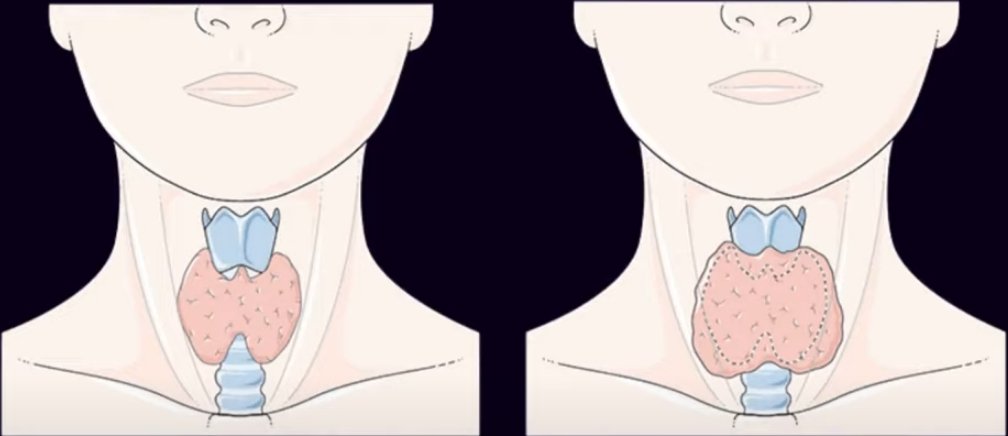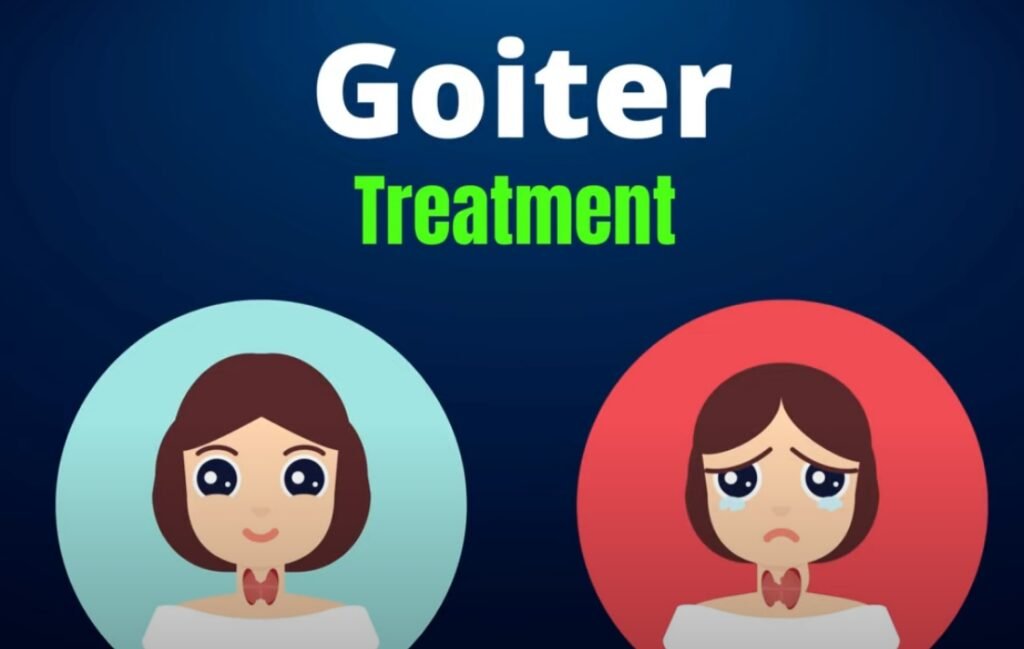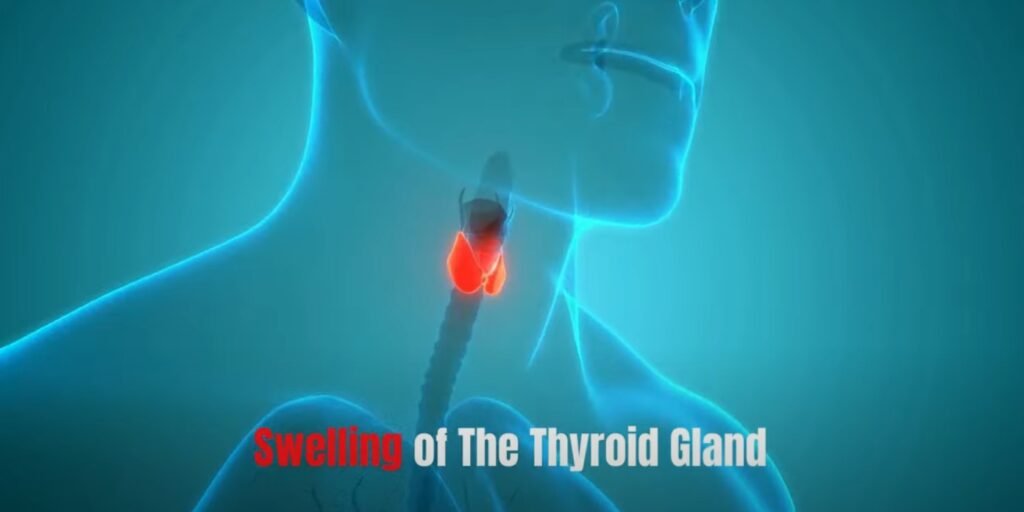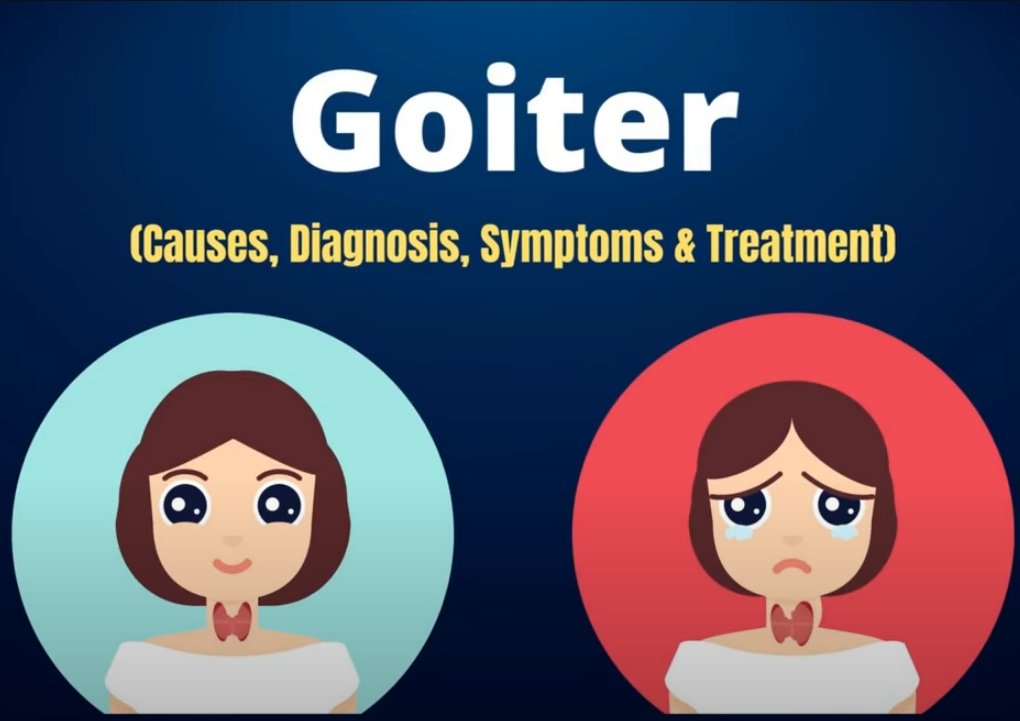Thyroid goitre, also known as Givite, is a disease that affects the thyroid gland, resulting in swelling in the neck area. While this condition typically manifests with visible neck swelling, it can also occur without any external signs. The thyroid gland, a crucial component of the endocrine system, plays a vital role in regulating various bodily functions.
The Influence of Thyroid Gland on Health
The thyroid gland, despite being relatively small, exerts significant control over the body’s daily activities. Through its secretions, it helps maintain homeostasis during periods of stress and strain, ensuring a delicate balance in the body’s regulatory systems. Its influence extends throughout the body, affecting various organs and functions.
Prevalence and Susceptibility
Women are more prone to thyroid goitre, especially those who experience excessive stress and inadequate rest. Certain life stages, such as puberty, pregnancy, menopause, and periods of physical strain, increase a woman’s vulnerability to developing goitre. However, men can also be affected by this condition, albeit less frequently than women.

Recognizing Symptoms
Identifying the initial symptoms of goitre can be challenging due to their brief duration and subtle nature. Early signs may manifest as emotional disturbances, including mood swings and irritability, which can escalate over time. Other symptoms may include difficulty concentrating, feelings of depression, and unexplained weight loss, often accompanied by extreme fatigue and muscle weakness.
Understanding the Causes
Goitre arises from various factors, with an inadequate intake of organic iodine playing a significant role. A diet lacking in organic iodine, combined with other physical and emotional stressors, predisposes individuals to this condition. Interestingly, populations residing near the sea, where seafood rich in organic iodine is abundant, have lower incidences of goitre.
Effective Treatment Approaches
- More and more exercise should be taken after the symptoms subside.
- The appetite of the thyroid patient is usually very lange and the weight reduction cannot be prevented for some time. This is because there won’t be full food assimilation until the heartbeat calms down and the tremors stop. However, weight will gradually rise after equilibrium is restored. To help the absorption of food, a narrow waist compress and, later, a neck compress should be worn for five nights a weck As weight increases, the almost constant An appetite will eventually vanish; stimulants should never be used to induce an appetite.
- Patients with goiter should avoid certain foods and beverages since they are highly harmful to them. These consist of goods made with white flour, white sugar, meat products, fried or oily dishes, sauces, tea, coffee, and alcoholic beverages.
- Iodine is unquestionably the most beneficial in many circumstances, but it should be supplied in organic form. Drugs should not be taken because they irritate the tissues. All foods containingindine should be taken liberally: These are asparagus, cabbage,

- carrors garlic, onion, oats, pineapple, whole rice, tomatoes, astercrens and strawberries Extreme caution must be exercised to prevent the body from overheating and any irritation that might lead to emotional distress. dould be avoided. The cure of goitre is not a speedy one and
- dere is often a recurrence of symptoms but these should grachually become less pronounced. Strict adherence to a
- witable diet is exsential for complete cure.
- Half the daily intake of food should consist of fresh fruits and vegetables, and the starch element should be confined to abole wheat products and potatoes. Potatoes are the most
- walable form of starch. They should preferably be taken in
- beir jackets. The protein foods should be confined to egg.
- cheese, peas, beans, lentils and nuts. Milk and all flesh proteins
- must be avoided.
- The diet outlined here should be strictly adhered to for a
- year, and the compresses on the neck and the waist applied for Ere consecutive nights in a week for two months and
- discontinued for one month. Water treatments should be taken
- to increase skin elimination. Application of sponge to the
- entire body before retiring and a cold sponge on rising will be very helpful. It is most important that the bowels are kept
- working efficiently to avoid danger of a toxic condition of the
- Good arising from that source.
- All efforts should be made to prevent emotional stress.
- Ibere may be a light recurrence of this extremely nervous
- complaint for some time, but the attacks will become less
- severe and of shorter duration as the treatment progresses.
- And above all, there must be no lessening of the woman’s efforts to help herself because success can only be attained assiduous effort.
- The primary treatment for goitre involves cleansing the body and adopting a balanced diet along with adequate rest and relaxation. A cleansing regimen typically begins with a juice fast consisting of fruits like orange, apple, pineapple, and grapes, followed by a transition to a diet rich in fruits, vegetables, and whole grains. Regular bowel cleansing and rest are essential components of the treatment plan.
Dietary Recommendations
A balanced diet is crucial for managing goitre, emphasizing fresh fruits, vegetables, and whole grains while avoiding processed and refined foods. Key dietary elements include fresh fruit juices, vegetable soups, salads, and protein sources like eggs, cheese, legumes, and nuts. Additionally, foods rich in organic iodine, such as asparagus, cabbage, carrots, and tomatoes, should be consumed regularly.
Lifestyle Modifications
In addition to dietary changes, lifestyle modifications are necessary for effective management of goitre. Adequate rest, regular exercise, and stress reduction techniques play a vital role in supporting thyroid health. Avoiding stimulants like caffeine and alcohol, as well as minimizing exposure to emotional stressors, are essential for symptom management and overall well-being.

Maintaining Consistency
Consistency is key in managing goitre effectively. Adherence to a balanced diet, regular bowel cleansing, and appropriate rest are essential for long-term success. While symptoms may recur periodically, they typically become less severe and shorter in duration as treatment progresses. It’s crucial to remain committed to self-care efforts and seek support as needed.
Quotes from Health Experts
- Dr. John Doe: “A balanced diet rich in organic iodine is essential for managing thyroid goitre effectively.”
- Dr. Jane Smith: “Consistency in lifestyle modifications, including diet and stress management, is paramount for long-term symptom relief.”
Conclusion
Thyroid goitre, though challenging to manage, can be effectively treated through a combination of dietary changes, lifestyle modifications, and adequate rest. By understanding the causes and symptoms of goitre and implementing appropriate treatment strategies, individuals can achieve improved thyroid health and overall well-being.

FAQs (Frequently Asked Questions)
- Can thyroid goitre be completely cured?
- While complete cure is possible with diligent adherence to treatment protocols, recurrence of symptoms may occur.
- Are there any specific foods to avoid for individuals with thyroid goitre?
- Yes, certain foods like processed sugars, fried foods, and caffeinated beverages should be avoided to manage symptoms effectively.
- Is medication necessary for treating thyroid goitre?
- Medication may not be required for all cases of goitre. However, consulting with a healthcare professional is advisable for personalized treatment recommendations.
- How long does it take to see improvements with dietary and lifestyle changes?
- The timeline for improvement varies for each individual. Consistency in following treatment guidelines is key to achieving positive outcomes.
- Can stress exacerbate symptoms of thyroid goitre?
- Yes, emotional stress can worsen symptoms of goitre. Stress management techniques such as meditation and relaxation exercises may help alleviate symptoms.
